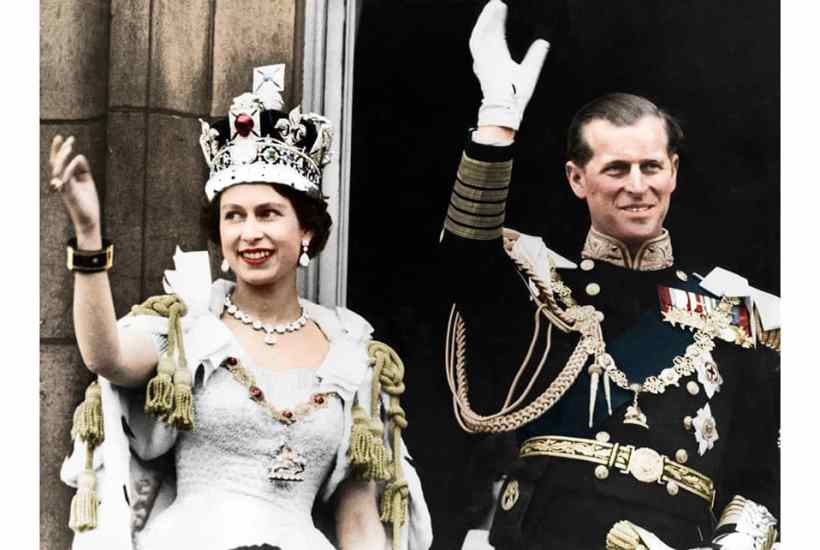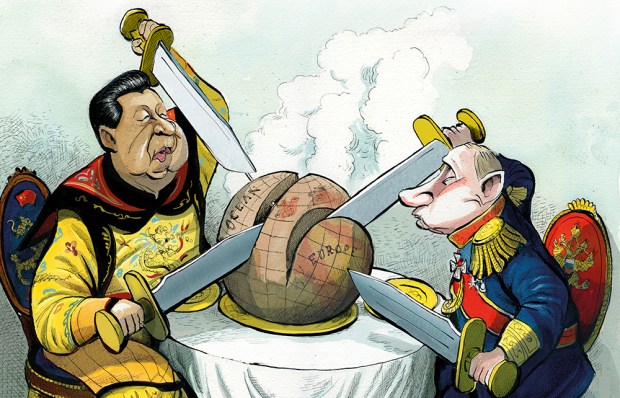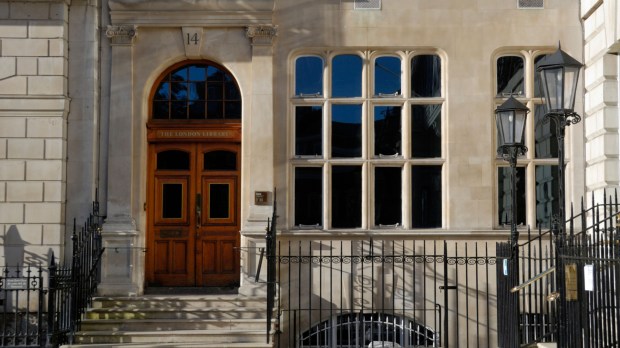Like many people who do not share his views, I have felt intermittent admiration for Peter Tatchell over the past 40 years. He has often been brave, and when I have met him, I found him open and friendly, as is often the way with cranks (e.g. Tony Benn). As the Platinum Jubilee approaches, however, I have gone off him. Last month, the Peter Tatchell Foundation (there’s posh) issued a press release headed: ‘Queen’s Platinum Jubilee invite declined by Peter Tatchell: Monarchy is not compatible with democracy. The Queen has snubbed the LGBT+ community for 70 years.’ He was turning down a role in the finale of Sunday’s Jubilee pageant which will celebrate him as one of our ‘national treasures’. In his rather cross letter of refusal, Mr Tatchell cannot explain how his inclusion in this place of honour is a snub. Besides, I don’t think the expression ‘LGBT+’ was current for the first 50 years of the Queen’s reign. How could she have snubbed a ‘community’ which, in that self-defined form, did not exist? Is he not being a touch pompous? As someone attending the finale of the pageant as a national non-treasure, I am sad Peter will not be parading in front of Buckingham Palace so that we can all clap him; but he has only himself to blame.
Is Mr Tatchell right, however, about monarchy? In his RSVP, he says: ‘A hereditary head of state is, in my view, incompatible with democracy, where positions of state should be decided by, and accountable to, the public. Royalty is a relic of feudalism. I see it as a symbol of privilege and inequality.’ If you look at the Freedom House rankings for the freedoms of all 210 modern nations, very few score 95 or over. (Putin’s temporary ‘nation’ of Eastern Donbas scores only.) In that select band, the only republics are Finland, Ireland, Portugal, Switzerland and Uruguay. The others – Australia, Barbados, Belgium, Canada, Denmark, Japan, Luxembourg, the Netherlands, New Zealand, Norway and Sweden, are all monarchies – four of them (though Barbados not for much longer) under our present Queen. The United Kingdom itself does not quite make it, coming in at 93. Spain shows well at 91. It is striking that the Tatchell assertion, though sounding right in theory, is factually quite wrong. Mightn’t monarchy be, in many circumstances, the guarantor of democracy? Shouldn’t Elizabeth II be thanked for proving this over 70 years?
One thing that emerges from Boris Johnson’s various adventures and accidents is that he needs the constant, wise attention over the small details of his life of a combination of valet and sage counsellor, a Jeeves to his Wooster. So it is a relief to learn that the Prime Minister recently took on a new private secretary whose name actually is Jeeves. Jeeves is his first name. His surname is Sidhu. I believe he is a Sikh. Rather brilliant that the problem of Boris’s disorderliness is thus addressed, while ticking the diversity and inclusion boxes at the same time.
Being a man, and therefore slow in the uptake, I have only recently come to see why the argument about men ‘transitioning’ to women is more virulent than when women seek to be men. The fundamental issue about whether one’s sex can be elective is the same, but the context is different. The obvious reason is often stated – that men presenting themselves as women can be threatening to women in lavatories and prisons, and to women’s prowess in some sports. There is a less obvious point too. The history of women’s emancipation is, in part, the story of how women challenged the idea that the male sex was superior and that being female was inferior. To change this mindset, women needed to show that their bodies, though different to those of men, were not somehow defective. Eve did not come out of her Adam’s rib: she and he were created equal. This caused feminists not to play down their sex in order to make men to take them seriously, but to celebrate it. If men nowadays think they can become women whenever they feel like it, many women are likely to see this as a male usurpation of the unique worth they have spent centuries trying to prove. We men feel less troubled about women wanting to be men because it does not wound our pride in the same way; indeed, it may even tickle our vanity.
To Glyndebourne, to see The Wreckers by Ethel Smyth, the first public production in Britain since 1910. The original libretto was in French, although Smyth was English and the opera is set, as its name suggests, in Cornwall. Glyndebourne uses that French version, which aids the sense of elemental universality (Tristan and Isolde, to which Smyth more than nods, is also sort of Cornish, also unparticularised). The foreign tongue reduces potential giggling at the unremitting seriousness, since unreal, portentous dialogue can be blamed on the surtitle translations. I was deeply impressed by the music’s power, but only one character is anything other than dark and bloody. Cornwall is the only English county in which I have never slept a night. Now I do not feel much tempted to do so. If I were running the Cornish Tourist Board, I would try to suppress The Wreckers.
Booking a hotel recently, I realised it has now become necessary to specify a bath, which we prefer. Even in good hotels, it is quite common to be given only a shower. It may be to do with saving the planet (less water used), or property prices (consequent lack of space), or Americanisation, or all three. Anyway, life without a bath is comfortless. It is impossible to relax, read or contemplate life in a shower. In church terms, it is like the difference between baptism and aspersion. The Queen presides over the Order of the Bath. No one would ever have devised an Order of the Shower.
Got something to add? Join the discussion and comment below.
Get 10 issues for just $10
Subscribe to The Spectator Australia today for the next 10 magazine issues, plus full online access, for just $10.
You might disagree with half of it, but you’ll enjoy reading all of it. Try your first month for free, then just $2 a week for the remainder of your first year.















Comments
Don't miss out
Join the conversation with other Spectator Australia readers. Subscribe to leave a comment.
SUBSCRIBEAlready a subscriber? Log in